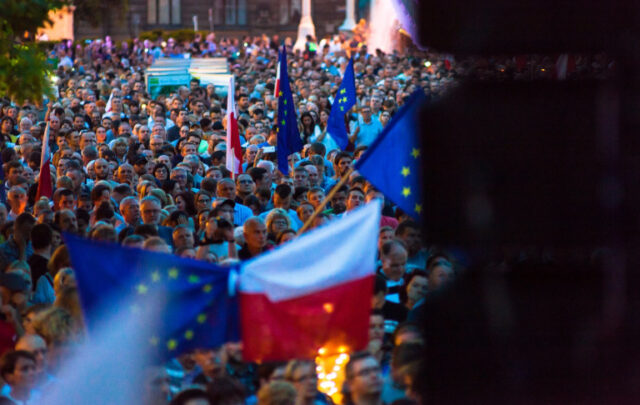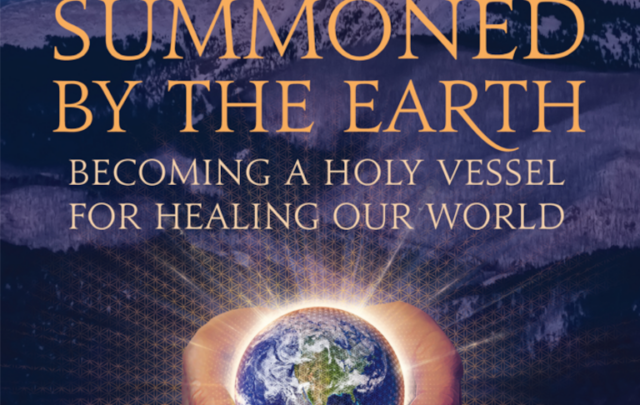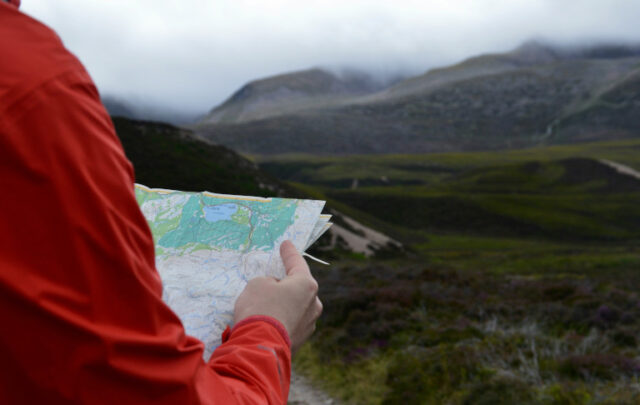Introduction
I seem to have spent my entire adult life engaged with the questions raised in the title of a course I teach: “What’s Wrong with the World? How Can We Fix It?’
So far, all I have is more questions, but the urgency feels greater with each passing day, every part per million more of CO2 in the atmosphere, every newly displaced person, every child suffering while so many live in heedless abundance. When will enough be enough? When will having too little matter?
I offer this interview, conducted by UC Santa Barbara student and musician Ethan Jones in my office a couple of months ago, in hopes that others will carry on the conversations that drive these unanswered questions.
Ethan: My first question is, how would you describe the events that led you to where you are at UCSB right now?
John: With respect to climate action?
Ethan: Just like in a professional sense.
John: Oh, sure. How did I become a professor?
Ethan: Yeah.
John: Ok. Yeah, I have been at UCSB for 28 years. Having done my PhD at Berkeley in the 1980s and this was the first and only job I’ve had right out of grad school, so it’s been a long career I’m quite happy with the many opportunities it has opened up for me here. I feel like I hit the jackpot. I actually grew up in New England and came out here to do grad school at age 23 and I did my masters right here. I already knew UCSB and I went on up to Berkeley for my PhD in sociology and a job opened up here and I was very fortunate to get that job. So yeah, I feel like I hit the jackpot.
Ethan: Nice. That’s awesome. How would you describe the PhD program at Berkeley? Would you describe the atmosphere there different than here in Santa Barbara?
John: Just the time was different. The 80s was a long time ago. Now almost 30 years ago. Every place has its own atmosphere; Berkeley’s is famous for being a hub that people go to around political issues of the day. Of course, I loved that. The chance to hear people speak and being in a community where there were ways to be active politically. For example, I went to some of the first meetings of what became the Green Party. They were just in somebody’s living room who is now a somewhat major figure in the Green Party, but we were all just young people interested in ecological and socialist politics at the time. That opportunity doesn’t happen very often. I didn’t at the time think much of it, but looking back, that’s what was going on. That was cool, and then the student culture at Berkeley was great, but that was partly because sociology there is pretty prestigious. The faculty were kind of remote I would say, so it was difficult to establish super close relations with them. I came in with an MA, so I didn’t really have a cohort, either, of graduate students with whom I’d been. That said though, there’s a student-run sociology journal, The Berkeley Journal of Sociology, when I joined that I met great people, other students from all the different cohorts, some older than me and younger. That became my reference group and a primary intellectual space for growth.
I had a very positive experience. I was kind of left alone by my committee to do a project that I wanted to do, the Iranian Revolution, and they let me do it. Most committees wouldn’t let you write an 800 page dissertation, but they did and it took three years, I’m happy I did it that way. It all worked out great from my point of view. By the same token, I think for a grad student now, this [UCSB] is an absolutely awesome place to be for some of the opposite reasons. The culture here is one of really close, sort of mentoring and relationship-building between faculty and grad students who still get a lot of autonomy to choose their projects independently, whatever they’re passionate about. We keep much better track of how people are doing and support them better, not so much than Berkeley, but better than other programs I’ve heard of. I will name one name, UCLA, which I’m told admits like three times as many grad students as they expect to finish the PhD and kind of weed people out at the master’s degree. I had a student go there from here and they did that to her, so I could never say a good word about them. They’re kind of the opposite model. Both Berkeley and UCSB work, but in different ways.
Ethan: So, I understand that you were active at an early age, going to Green Party meetings, meeting those people and being in that group. When would you say was the moment you started to become passionate about climate change?
John: That’s such a good question and I’m embarrassed to say it was much later in life. I can tell you the year, it wasn’t until 2009, nine years ago now. That’s even though I had been studying all kinds of social movements for change and I had been teaching sociology of development, which is about how societies can develop, particularly if they’re in the global South and the environment should be a major component of how one looks at any country’s situation, but I never really placed it at the center of anything.
Well into my career, in 2009, I was living in London for a year on a sabbatical, so I could go wherever I was interested in. That happened to be the year of the UN Climate Summit in Copenhagen and Obama had just become president and the media was saying that was the place where a global climate treaty would be reached. Expectations were high and in England they were much more involved in general as a society.
In the fall of 2009 I started to notice events by activists who were going to Copenhagen, they were inviting people to come and learn about the issues; I went to a couple and that was interesting enough for me to kind of on a whim go to Copenhagen myself. It’s a two-week conference, I was able to be there for five days and what I found was a whole parallel conference by the Global Climate Justice Movement, two weeks of their own programming. So, for example, I heard people who have sort of become heroes of mine. Bill McKibben spoke to us, Naomi Klein spoke to us, the president of the Maldives, Mohamed Nasheed, who was the Nelson Mandela of the Maldives. He was imprisoned under a dictatorship, came out and became the elected president, he came and spoke to us, it was very moving. I met a lot of activists from all over the world; it wasn’t immediate, but something hit me then such that when I returned to UCSB in the fall of 2010 I started to shift my teaching and my research in the direction of the climate crisis, and still the social movements that were trying to deal with it. That’s the continuity.
Ever since, I’ve just been on this immense learning curve, adventure, interdisciplinary scholarship and teaching and research with activists which means participating with activists in the global climate justice movement. It has become the central identity I have as a scholar, really as a human being. It’s that dramatic of an issue and it’s been so rewarding to meet the people I have met, who honestly without exception have been extraordinary people from all over the world of all ages. It’s a movement that is easy to participate in because it’s really just a network of many organizations, some small and local, some big and global; citizens coming together and trying to do their bit to stave off a massive catastrophe that climate science tells us is heading our way. The gloomy topic of the climate crisis actually gave me a real strong sense of purpose and affirmation and it’s been a joyful experience. The teaching is very rewarding too, working with students who get it and want to do something.
Ethan: So you touched on this in your answer, but I went through some of your blog posts and I saw you talking about BYOB and some of these other conferences and it seems like you are endlessly inspired by this community, which is pretty cool. What do you feel about conferences that you’ve gone to in the past that were pretty remarkable?
John: First I should preface that by saying that I finally realized, because some climate scientists in England pointed it out, that we shouldn’t be flying everywhere to do a fifteen-minute talk about the climate crisis. As people who supposedly understand the problem and what is causing it, aviation is right up there, it’s the massive part of any academic’s carbon footprint. So, they started a petition of climate scientists and the first instance is they will no longer do this. When I heard of that I was quite inspired. It’s not true that I don’t fly anymore, but I don’t really fly for an academic conference if my role is to speak for fifteen-minutes. We have discovered how to do a virtual conference and have put them on here at UCSB in the last two years and the credit goes to Ken Hiltner, who is a professor of English and developed that. We have had four virtual conferences. Now if I’m invited to a conference I will say I’d love to speak and I will happily record a fifteen-minute talk if you’ll show it. Some places say yes and some don’t, but we are trying to push that out there. If I’m flying somewhere I really think about it first and it’s true that I took two air flights last summer.
One was to the conference that you mentioned, BYOB, which stands for Bring Your Own Brain. What was so amazing about that was that it was organized by high school students around the climate crisis. There was a tremendous teacher, who was a Spanish teacher of all things, who was exposing them to Spanish-speaking social movements in Latin America and indigenous movements, through which they discovered the Zapatistas in Mexico and then this past year his group decided they wanted to go to the root of the global crisis and that for them was climate change. They spent nine months putting together a conference that lasted five days in Missoula, Montana. This was a group of about fifteen students, their teacher, and a few adults in the community around these issues with the support of the school, because it’s a remarkable thing for anyone to do. This guy has taken students to Chiapas in the past, which I’ve never been.
They did it mostly virtually, so they had big name people like the British journalist, George Monbiot at The Guardian who is a leading climate journalist; people like Derrick Jensen who’s a very famous radical, sort of anarchist climate activist; Bill McKibben spoke at it; others spoke. I was only there because they invited a friend of mine [John Holloway] who is a big deal from Mexico, who said “I can’t go but John Foran would be a good person,” so they invited me to come speak about the climate justice movement. I was just captivated by what they had done, meeting them, interviewing them, and I did write about it, as you said. I wanted the world to know that this is enormously inspiring, there’s great hope involved in it and they’re just smart, creative, imaginative younger people who are putting their heads together and figuring out what skills they have and how they can communicate a message, so that was big.
The second one was called the US National Transition Gathering. Transition Towns is a movement that started in the UK in the early 2000s and it’s the idea of bringing neighbors together to create a more resilient community however they see that. It has led to very local, small-scale projects all over the world, including the US, around community gardening, renewable energy for your community, all kinds of cultural coming together and rethinking how we live and patterns of consumption and community and self-governance. It’s kind of a big DIY thing on a very human, face to face scale and this was the first national gathering of US Transition Town folks from all over the country getting together to compare their experiences. I had always been curious about that movement, it sounded great, so I wanted to go meet them and see what they are up to and how it works. That was equally inspiring because there are two sides of the movement. One, you have to stop the bad things from happening, which the climate movement does a lot, they put their bodies down in front of the fossil fuel industry and do whatever they think has to be done to keep things from getting worse. On the other hand you have to project and build yourself – in the midst of all of this – an alternative model, a vision of the society you want to live in and that’s what Transition Town does. None of these are perfect, but they’re both human, exciting, uplifting experiments. I did go to those two things and they made an impact on me.
Ethan: That’s good to hear.
John: We are trying to do a transition initiative in Isla Vista.
Ethan: That’s awesome.
John: The students. It’s their project and we are calling it Eco Vista.
Ethan: That’s cool. I’m definitely going to ask a couple questions about local movements in a second. I found that you mention the Zapatista Movement a lot in your writing, what specifically do you find inspiring about that movement?
John: The Zapatistas are residents, almost all of them indigenous, of Chiapas, Mexico, which is the remote southeastern corner of Mexico. They sprang onto the world scene on January 1, 1994, the day that the NAFTA trade agreement between Canada, the US, and Mexico went into effect. On midnight eve, they very symbolically took over a handful of towns. They were mostly country people, but they went to the towns of Chiapas and took them over and said they were opposed to the poverty that they’re in and they think that trade agreements are only going to take their traditions away, their language, their way of life and economy. They felt that the Mexican government didn’t represent them and was betraying them, so they chose to run their communities themselves. It was a combination of trying to stop what’s happening and envisioning an alternative and they have stayed in their place successfully, running their own communities extremely democratically and sort of in the way that Occupy Wall Street would have an assembly.
They were doing this fifteen years before that, where they’ll have a long conversation until everybody agrees on what to do and everybody has a voice and leadership is rotated so that everybody learns how to run things over the course of time. They’ve attracted global attention to their small local movement by just being very astute users of both social media and in your face, whimsical kinds of opposition. They have a lot of writings we can read that are quite inspiring.
To me, that movement in 1994 was sort of the opening of the 21st century movements for radical social change because they were doing this essentially nonviolently, as opposed to revolutions of the past. They were doing it prefiguratively, which means they were trying to proceed to the ideal society by embodying that as they went.
So, that’s what it is and it touched off that same sentiment all around the world in what emerged into the global justice movement, the most famous battle of which took place in Seattle in November and December of 1999, when sixty thousand people shut down the meetings of the World Trade Organization successfully and they were directly inspired by the Zapatistas. Out of both of those movements, plus Occupy in 2011 and the Arab Spring comes, I think, the global climate justice movement, it’s in that line of development. It’s global, it’s comprehensive, it argues that we can’t deal with the climate crisis without dealing with the economic crisis, the democratic crisis, the problems of militarism and violence in our societies.
By making those connections we can turn the climate crisis into an opportunity to actually arrive at a more egalitarian, democratic, peaceful society than we would’ve had without this crisis. To be sure, it’s going to be a warmer and far more challenging environment to live in. Rather than see that as either a continuation of what we have now or as some kind of awful dystopia, which is another common vision that we are given of the future, because of the crisis we can actually create something that we have been trying to do for hundreds of years, which is that kind of better society. That’s what the movement is trying to do.
Ethan: The next couple of questions are about local movements. One thing I wanted to get your opinion on is, what would you say to those that diminish the legitimacy of local movements if they believe that local legislators are already working towards anti-climate change interests? Do you believe that local movements still have value in this area specifically?
John: I think the question implies an answer, which is that if politicians aren’t doing the right thing we have more of a reason for local movements to replace them or to go around them. Maybe through the initiative process like we did to try to ban fracking two years ago with Measure P or to engage in that struggle on a different terrain, which is not elections and the US government or the local government for that matter. That’s one answer. The other is that it is a global problem, but movements tend to be local in nature, like Transition Towns, like the Zapatistas. Like Occupy was, because Occupy was Occupy New York, Occupy Oakland, Occupy Detroit, Occupy Isla Vista.
What’s exciting there is that you can think of a global movement in terms of a network of local movements who can now communicate and learn from each other better than ever before. You can also embody and do both kinds of politics, which is to stop fracking, for example, and to also imagine our own Isla Vista as something that could reach its full potential, which is a vision we call Eco Vista. A place where we have cooperatively owned housing, small cooperative businesses, renewable energy, real self-governance which they’re struggling toward, community gardens to provision our own food and a rich cultural life.
I’m immensely inspired by the students who started this idea up about a year ago and I’m running with it with them and having my classes get involved in it. This is what everybody wants, this is an opportunity to live in the way you think people should live, could live, wish to live. To do it with your own hands together with other people and see it happen and learn from it; learn from your mistakes and take all the theories and examples that students read about and have them actually go and see if they can do it right where they live. That is enormously eye opening and exciting.
Ethan: So, Eco Vista is a recent student initiative that parallels what the global climate justice movement is doing?
John: Yes, and it definitely parallels to what this Transition Town thing is about and at some point, it could declare itself a transition experiment and formally, if it wants, affiliate with this movement. A lot of transition work happens under other names, it’s all good.
Ethan: I will end off with this last question. With the idea of movements in general, in Santa Barbara we see a couple of different movements like the Santa Barbara Citizens Climate Lobby, looking at carbon fee and dividend and then there’s movements like Eco Vista that are more broad. Do you think there is a certain benefit to having a laser focus like a carbon fee and dividend or is it more beneficial to be less focused and more general with the movement?
John: I think all the above and I think whatever the individual gravitates toward is to the good and I think the crisis is such that there is room for everybody to follow their own best lights into forms of activity, organization, effort, and experimentation or joining something existing. Whatever strikes their imagination best.
I think this is a big enough movement, it has to become the biggest, broadest, most multifaceted movement in the history of movements to achieve its aim which is no less than the survival of humanity further down the road in the century and a just transition to a better way of living. So I’m in favor of all the above, there’s no one model to solve this problem, but altogether I think many pin pricks can draw blood, to use a violent metaphor which I don’t uphold strategically. The mosquitos can win.
Ethan: That was really helpful, that was all my questions for you.
John: My thanks to you and to Erika Foster who transcribed this interview.
John at work. Photo by Aaron Howard. February 2016.






